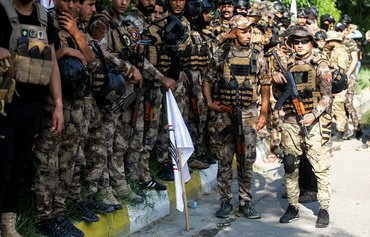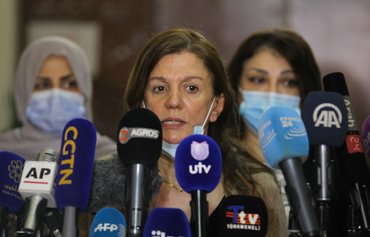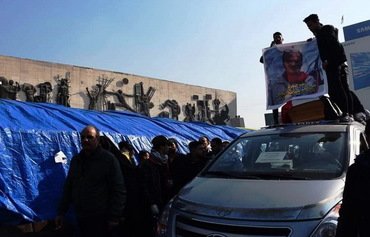A third anti-government activist has been murdered in Iraq in less than 10 days, police and medics said Wednesday (December 11th), as the UN accused militias of killing and abducting demonstrators.
Protestors have complained of an intensifying campaign of intimidation in a country where pro-Iran armed groups integrated into the security forces wield growing influence.
The body of 49-year-old father of five Ali al-Lami was found overnight with gunshot wounds to the head, according to his friends, who said he had arrived in Baghdad just days earlier to join the protests.
A police source said the attackers had used guns with silencers, while forensic experts said Lami had been struck by three bullets.
Iraq's capital and its Shia-majority south have been gripped by more than two months of anti-government demonstrations in which more than 450 people have died and 25,000 have been wounded.
The UN urged the Iraqi authorities to hold to account the perpetrators of a string of murders and abductions of activists and protestors.
"Groups referred to as 'militia', 'unknown third parties', 'armed entities', 'outlaws' and 'spoilers' are responsible for the deliberate killings and abductions of demonstrators," said a UN report released Wednesday.
"These acts contribute to a climate of anger and fear. The government must identify those groups responsible without delay and hold perpetrators accountable."
The role of the Popular Mobilisation Forces (PMF), a network of armed groups integrated into the state, has come under increased scrutiny.
Founded in 2014, the PMF is made up of mostly Shia factions, many of which have been backed by Iran.
Following an attack against protestors in Baghdad at the weekend that left 24 dead, PMF chief Faleh al-Fayyadh ordered his men to stay away from rallies, in what was seen by demonstrators as an admission of guilt.
Since October 1st, demonstrators in Baghdad and southern cities have disappeared almost daily. The authorities say they have been unable to identify the perpetrators.

![An Iraqi student covers her face with a national flag as she takes part in an anti-government demonstration in the central city of Najaf on December 11th. Since October 1st, Baghdad and Iraq's south have been gripped by rallies against corruption, poor public services, a lack of jobs and Iran's political interference. [Haidar Hamdani/AFP]](/cnmi_di/images/2019/12/12/21404-Iraq-iran-protests-600_384.jpg)






